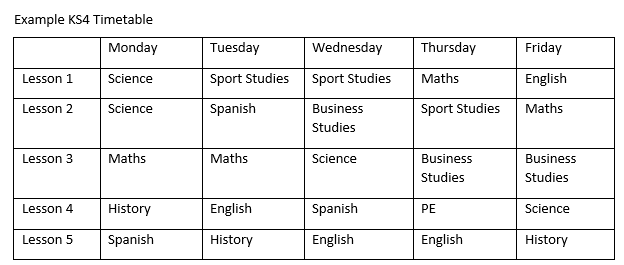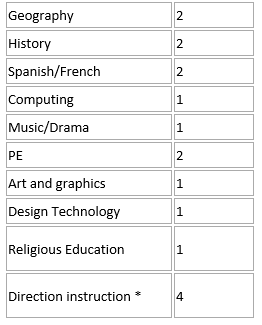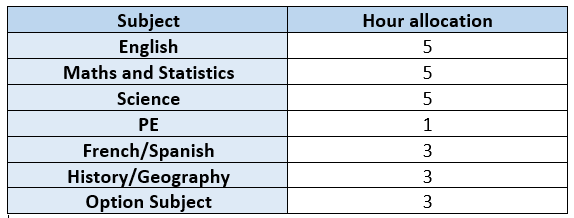Curriculum
At the Duston School, the curriculum is central to our ethos. We provide students with a broad curriculum, focused on rich knowledge to engage our students with a wide range of subjects to give them a broad and balanced experience, with courses designed to suit the individual needs of all our students.
Our Core Aims:
- Our core aim is to help students climb the tree of knowledge, so they can access university, higher education, employment or an apprenticeship
- Our curriculum is embedded in a knowledge rich approach and we firmly believe that knowledge begets knowledge
- Through the enacted curriculum there is an expectation that students retain what they have been taught in their long term memory (schema)
- There is a strong emphasis on retrieval practice, sequencing and interleaving, with the curriculum seen as a progression model
- Powerful knowledge gives students the cultural literacy they need to become active citizens in society and further their personal aspirations and ambitions
Supporting Students
The learning experience of our disadvantaged and those with SEND are at the heart of our thinking on curriculum and teaching. We provide support in a variety of ways and centre our approach on:
- Quality first teaching, where all tasks and activities are carefully sequenced to allow students to build on their knowledge and understanding
- Effective modelling of tasks and activities to ensure that students are able to access and be successful
- Students who require additional support in English and Mathematics at KS3 access Direct Instruction lessons through which they build their literacy and numeracy
- Quizzing and other methods ensure retention of knowledge over time
- Routine driven approaches to ensure a calm and purposeful classroom environment
Key Stage 3
At KS3 our aim is to provide a rich curriculum, building knowledge and enjoyment in a range of subjects for their own sake, rather than as simply working towards GCSE courses. As a result, we have a three-year key stage 3 and students are not expected to follow any specific pathways in preparation for GCSE. We put emphasis on a curriculum that teaches rich and powerful knowledge and language, offering a suitable level of challenge to engage students from the start of Year 7. Students in Key Stage 3 are given access to an exciting curriculum (including Computer Science, Drama, Music, Art and Design) covering the requirements of the National Curriculum (and occasionally going further) by the end of Year 9. Students with additional needs are carefully encouraged via multiple layers of support both academically and socio-emotionally. In Year 9, our students are supported to engage in selecting their subject areas for further study at GCSE. This process is carefully managed by providing tailored guidance through individual conversations with all students to ensure that their next steps offer them the best chance to achieve their potential.

Key Stage 4
Our two year Key Stage 4 provides breadth and depth across nine subjects enabling our ambitious curriculum experience to continue from KS3 into KS4. In Key Stage 4 all students study English Literature and English Language, Mathematics, Statistics, Double Science and a Modern Foreign Language. Students are then require to study either geography or history and one other subject. Some students choose or are guided to take, additional lessons to support their English and Maths. Students are taught in sets according to ability in all the core subjects, as well as history and geography. The majority of students follow the full Ebacc suite (against a national percentage of 40%). This demonstrates the high level of aspiration that we hold for our students.

Bespoke Curriculum Pathways:
Students are assigned a pathway based on their Key Stage 2 outcomes and progress across Key Stage 3. The majority of students are placed into the Ebacc pathway and continue to study the language that they have studied throughout Key Stage 3.
|
Pathway A: Ebacc |
Pathway B: Humanities |
Pathway C: Additional |
Pathway D: Support |
|
History or Geography |
History |
Additional English or Additional Maths |
Support English |
|
Spanish or French |
Geography |
Geography or History |
Support Maths |
|
1 other option |
1 other option |
1 other option |
1 other option |
How do we build cultural capital
The Duston School is founded on a clear mission statement and set of aims that inspire our pupils to ‘climb the tree of knowledge so they can access University, Higher Education, Employment or an Apprenticeship and be the very best edit of themselves.’ We endeavour to help our pupils gain the highest qualifications, acquire flexible life-long learning skills, and be ready to act responsibly as global citizens. We also promote the social, moral, spiritual and cultural development of our pupils, including a recognition and understanding of Fundamental British Values.
How do we organise our curriculum structure
At The Duston School we operate a one-week timetable where lessons are taught for a period of one hour. We operate a three-year KS3, a two-year KS4 and a two-year KS5. It is this structure that allows us to provide a broad, ambitious curriculum for all students.
Key stage 3


*Those accessing Direct Instruction for either Maths or English will come out of a language/Art and graphics in order to access this specific intervention
Key Stage 4

*Subjects offered as Option subjects are revised annually dependent upon student choice and numbers.
How do we organise tutor time and assemblies
At The Duston School form tutors play a key role in supporting students to be ready to learn and students in all years see their form tutor daily. Our tutors help to set their tutees up for success every day and carry out a planned series of activities supporting their academic and social development. We have very strong pastoral support and expect all of our students to be known as individuals. In addition, all year groups have a weekly assembly which across the year covers a range of themes connected to our school values of Aspiration, Respect and Resilience.

How we approach extracurricular activities
We have a wide range of extracurricular activities available to our students which are timetabled for academic year. These cover a range of curriculum areas as well as going beyond the taught curriculum.
We have particular commitment to the schools Combined Cadet Force (CCF) as we believe this develops students personal responsibility, leadership and self-discipline which align with our school values.
How do we seek to implement our curriculum
In lessons, students are exposed to a subject-rich experience that challenges them whilst remaining accessible. It pays attention to academic traditions/disciplinary aspects but also aims to be contemporary and relevant. Individual teachers show their passion and love for their subjects but in an environment which is well aligned with teachers sharing centralised resources through our workbook approach. Subject leaders have taken the timet o carefully sequence the content to allow students to demonstrate deep understanding of important ideas and concepts.
In addition, our implementation is supported by:
- Subject level Curriculum Intent statements which explicitly outline the aspirations that underpin curriculum design in each subject
- Coherently sequenced curriculum summaries
- All classes taught by subject specialists
- High quality Centralised approaches across most curricular areas led by highly skilled leaders
- High quality CPD which follows an annual plan based on the national standards for professional development.
- A well understood Behaviour for Learning system and a consistent approach to routines that helps our students to learn effectively
- Deep thinking about effective Teaching and Learning built around our Curriculum and Teaching and Learning Principles
- Systems of intervention and support for students (especially in the context of our SEN interventions)
- Deliberate strategies designed to avoid excessive teacher workload and support well-being of our staff
How do we review the impact of our curriculum
At The Duston School we continually seek to review the impact of our curriculum in a variety of ways.
These include
- Student outcomes
- Student destination data at post 16 and post 18
- Internal student monitoring data including via Progress Reviews and Behaviour for Learning data
- Well-developed systems for self-evaluation and impactful conversations with subject leaders that follow an annual cycle and are regularly reviewed .
- Thoughtful quality assurance approaches of our Subject Reviews that suit our context -“learning walks” and student work sampling is skillfully used to impact on staff training
